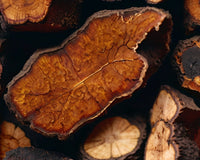Benefits of Konjac
Konjac’s high fiber content has many health benefits. Soluble fiber helps lower cholesterol and blood sugar levels. A high-fiber diet can also help regulate bowel movements, prevent hemorrhoids, and prevent diverticulosis. The following is the content of the study:
Konjac and constipation
A 2008 study found that glucomannan may help prevent constipation. Research shows that adding glucomannan to a low-fiber diet increases the number of probiotic bacteria in your stool. It also improves bowel movement by 30%.
Konjac and weight loss
The fiber is filling. Consuming it regularly helps keep you fuller longer, so you're less likely to overeat or snack between meals. Konjac also expands in the stomach to help keep you full.
Konjac and cholesterol
A 2008 systematic review found that konjac may help lower total cholesterol, LDL (bad) cholesterol, and triglycerides. Konjac also reduced body weight and fasting blood sugar. The researchers concluded that glucomannan could be used as an adjunctive therapy for patients with diabetes and high cholesterol. A later study found that konjac lowered LDL and recommended its use to reduce the risk of cardiovascular disease.
Konjac and skin health
According to a 2013 study, konjac can reduce acne and improve skin health. It is thought to reduce allergic reactions and improve wound healing.
How to use Konjac
Konjac Supplements can be purchased online or at most natural health stores. Supplements are not regulated by the Food and Drug Administration (FDA). Only buy from reputable manufacturers.
Take Konjac with plenty of water, preferably before meals. There is no approved, standardized dosage of konjac. Recommended dosage varies by manufacturer and your intended use. Their weight usually ranges from 2 to 6 grams. Follow the manufacturer's dosage instructions, or contact your doctor or qualified natural health practitioner for advice.
KonjacRisks and Precautions
Some konjac candies have caused suffocation deaths in the elderly and children, according to the FDA. This prompted the FDA to issue an import alert for konjac candy in 2011. Konjac Sugar has a gel-like structure and does not dissolve in the mouth like other gelatin products.
KonjacSupplements may also swell in your esophagus or intestines and cause blockages. If you:
Take Konjac tablets
Taking any form of anhydrouskonjac
Older
Difficulty swallowing
Some countries have banned the use ofkonjac due to a high incidence of intestinal or throat obstruction < /span>. Children and pregnant or breastfeeding women should not take konjac supplements.
If you have symptoms of an allergic reaction, stop taking konjac and seek medical help, for example:
- Difficulty breathing
- Hives or rash
- Itchy skin
- Raised heart rate
- Swelling
Konjac has been shown to lower blood sugar levels. It may slow the absorption of sugar, so people with diabetes should monitor their blood sugar closely. If you take insulin or other diabetes medications, consult your doctor before using konjac.
Conclusion
Konjac is a plant that has been used as food and medicine in Asia for centuries. Studies show it can help you fight constipation and lower cholesterol. More research is needed, but konjac may also help with weight loss. The best formula for reducing the number on the scale remains a healthy diet and regular exercise.





